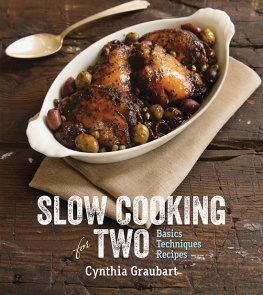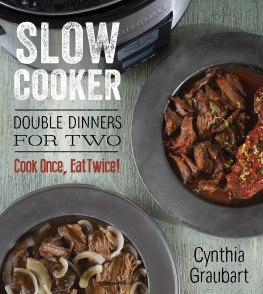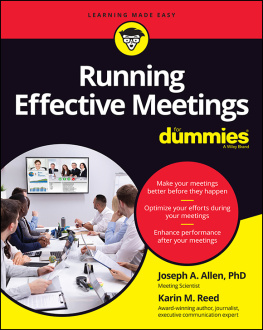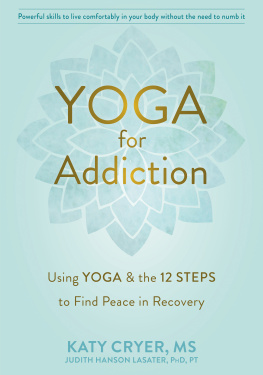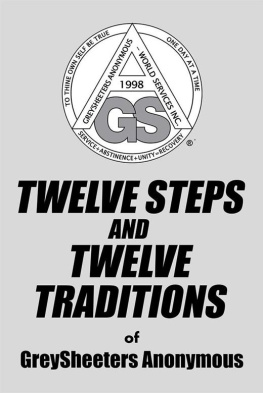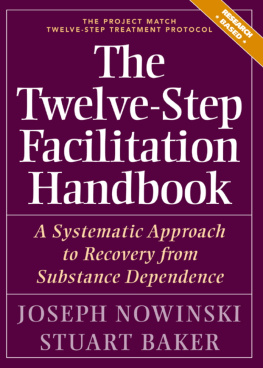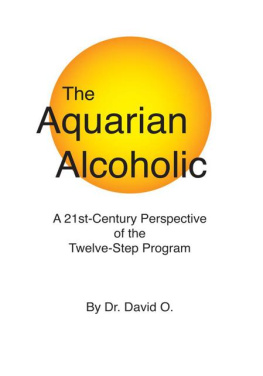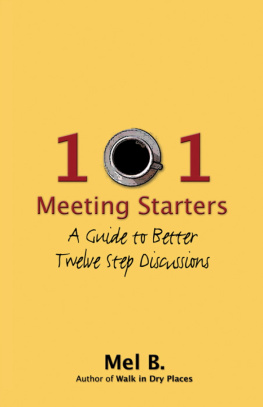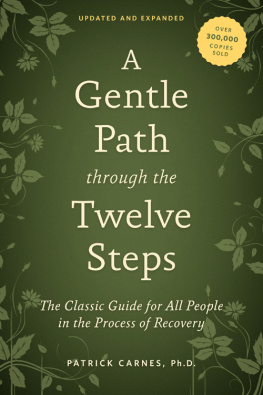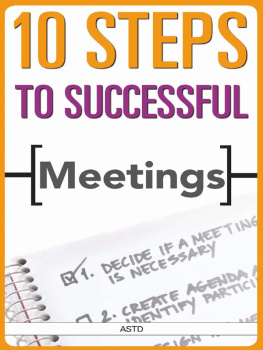Hazelden Publishing
Center City, Minnesota 55012
hazelden.org/bookstore
2017 by Michael Graubart
All rights reserved. Published 2017.
No part of this publication, either print or electronic, may be reproduced in any form or by any means without the express written permission of the publisher. Failure to comply with these terms may expose you to legal action and damages for copyright infringement.
Library of Congress Cataloging-in-Publication Data
Names: Graubart, Michael, 1958- author.
Title: Step up : unpacking steps one, two, and three with someone whos been there / Michael Graubart.
Description: Center City, Minnesota : Hazelden Publishing, [2017] | Series: Step in to recovery series | Includes bibliographical references.
Identifiers: LCCN 2017025231 (print) | LCCN 2017029961 (ebook) | ISBN 9781616497477 (ebook) | ISBN 9781616497460 (softcover)
Subjects: LCSH: Twelve-step programs. | Recovering alcoholics. | Recovering addicts.
Classification: LCC HV5276 (ebook) | LCC HV5276 .G73 2017 (print) | DDC 616.86/06--dc23
LC record available at https://lccn.loc.gov/2017025231
Editors note
This publication is intended to support personal growth and should not be thought of as a substitute for the advice of health care professionals. The authors advice and viewpoints are his own.
Some names, details, and circumstances may have been changed to protect the privacy of those mentioned in this publication.
Alcoholics Anonymous, AA, and the Big Book are registered trademarks of Alcoholics Anonymous World Services, Inc. Hazelden Publishing offers a variety of information on addiction and related areas. The views and interpretations expressed herein are those of the author and are neither endorsed nor approved by AA or any Twelve Step organization.
Cover design: Kathi Dunn, Dunn + Associates
Typesetting: Percolator
Development editor: Vanessa Torrado
Dedicated to the men who sponsored me over my first twenty-five years in Alcoholics Anonymous
Bob S., Charlie M., Hal R., and Milton D.
. Or clean in Narcotics Anonymous or abstinent in Overeaters Anonymous, or whichever A applies to you.
An Invitation to Another Way of Life
This book is a guide for people who wish to get or stay sober, to find or deepen their recovery through Twelve Step practices. Together, well cover everything you need for a strong understanding of Twelve Step recovery and the programs first three Steps.
These Steps serve as the foundation of Alcoholics Anonymous (AA), Narcotics Anonymous (NA), Marijuana Anonymous (MA), Cocaine Anonymous (CA), Al-Anon, Overeaters Anonymous (OA), Debtors Anonymous (DA), and any other program ending in A. So, the goal is to give you a strong foundation for another way of life.
Ill also give you an idea of what to expectand demandwhen you come to a Twelve Step fellowship. The operative phrase, as with everything in the fellowship: Take what you like and leave the rest.
This book is neither Conference-approved nor politically correct.
It represents the experience, strength, and hope of exactly one sober alcoholic who desires to share the good news of Twelve Step recoverythat there is a solution, and that you never have to drink, use, or be lonely againif youre willing to follow our proven path.
The book has a second goal as well.
The Second Step invites the recovering alcoholic and addicts to be restored to sanity.
After twenty-five years of continuous sobriety and active membership in the AA fellowship, my belief is that while Twelve Step recovery has traditionally been rooted in a spiritual program, The Second Step invites recovering addicts and alcoholics to be restored to sanity through the belief of a Power greater than ourselvesand, as an extension, through the practice of a spiritual program. Yet, many aspects of how the fellowship functions today have moved away from the very thing that was supposed to help us all restore our sanity: spirituality.
Twelve Step recovery has entered a post-spiritual phase. My perspective is that we need to embrace the program as it was meant to be lived.
The program was developed many decades ago; since that time, our society, culture, norms, and even our vocabulary have all evolved. Terminology in use since the earliest days of the Twelve Step program is challenging for many people to approach. Im not saying or implying that we should all go back in time for our sobriety; what I am saying is that in our evolution, weve lost hold of a vital part of the program that really can transcend everythingincluding our addictions. And thats the spiritual.
Many meetings today are essentially group therapy without a therapist. These meetings consist of a mishmash of complaining about life, therapy-speak, treatment center concepts, updates on the health of the members cats, and checking in about my day or claiming my seat. Theres almost nothing about the joy of recovery, the relief from the bondage of alcoholism and addiction, or the spirituality of the program.
Newcomers get the idea that telling the group about how your cat is doing and claiming ones seat is Twelve Step recovery, and there are people who have been working a program for a while who assume thats all there is to it.
Its not.
The problem that brings us to any Twelve Step fellowship is a spiritual problem, one weve tried and failed to solve with alcohol, drugs, sex, food, money, debting, spending, over-exercising, smoking, or a host of other behaviors. In the simplest terms, we addicts feel a hole in our lives, an absence of something in our sense of self, in our being. To fill that hole, we use substances, people, or money (that we have, that we dont have, or that other people have). We use because we have lost or never found a connection to something bigger than ourselves.
The problem we share is spiritual; which is why the essence of the solution is also spiritual.
Ive been at countless meetings during which people read from the spiritual language in the Big Book, Basic Text, or other Conference-approved sources. Once read, the ideas are often ignored, as if they were a meaningless hangover from an earlier time, and the meeting goes on to how everyones cats are and claiming ones seat.
So lets get real.
To get and stay clean and sober, or to find recovery in any fellowship, you dont have to adopt the word God or the word Creator or any other term for a Higher Power. The term is not the point.
If you want the full benefit of recovery, and not just the physical sobriety you can achieve solely by going to meetings, youve got to find a Power greater than yourself.
Without that Power, theres no real change of heart, thought, or behavior. Without that Power, were not in touch with the spiritual.
We remain the person we were when locked in our addiction.
We never get to find out who we could have been.
Thats what Twelve Step recovery traditionally helped people dofind that Power greater than themselves and live the lives that they were always meant to live.
Twelve Step recovery is a coin with two sidesthe first is the fellowship; the second is the recovery program itself. My hope is that by refocusing on the spiritual nature of the solution to addiction, this book will help refocus on the goals of the program and restore the fellowship, and not just individual alcoholics and addicts, to sanity.
Its a big wish, but both the newcomer and the old-timer deserve nothing less.
The book is divided into three sections, and each one is written in question-answer format to address the queries Ive most frequently heard from newcomers to Twelve Step recovery. The first section introduces you to the concept of Twelve Step recovery in general. The second takes you through the first three Steps. And the third covers the most common issues that addicts and alcoholics have once they begin their recovery.
Next page


